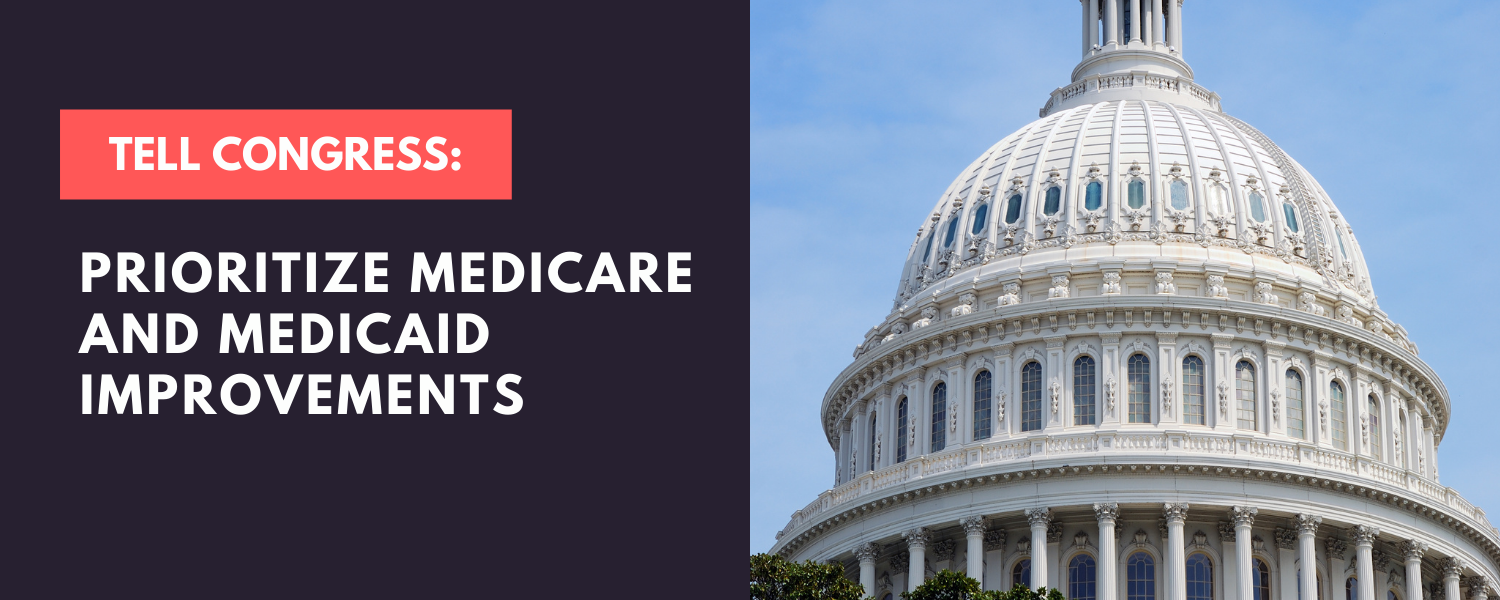Act Today! Tell Congress to Prioritize Medicare and Medicaid Improvements

Congress is currently considering strategies to improve health coverage and care, including through the budget reconciliation process. Weigh in today! Tell your lawmakers to seize this opportunity for transformational reforms.
Medicare and Medicaid provide critical health coverage to millions of older adults and people with disabilities. But gaps in eligibility and benefits, rising costs, and archaic rules mean far too many beneficiaries can struggle to access and afford their care. The pandemic has exacerbated these and other challenges, underscoring the need for a budget reconciliation bill that offers swift, meaningful, and lasting relief.
Urge your lawmakers to support a budget bill that:
Makes Prescription Drugs More Affordable by allowing Medicare to negotiate drug prices, capping and smoothing beneficiary out-of-pocket drug costs, and restructuring the Part D benefit to reduce Medicare’s liability and better align pricing incentives.
Strengthens the Medicare Benefit by adding comprehensive dental, vision, and hearing coverage to Part B; establishing a limit on beneficiary out-of-pocket costs, program-wide; and expanding Medigap protections and purchase rights—including open enrollment, guaranteed issue, and community rating—to all people with Medicare.
Improves Medicaid Coverage and Care by making the Better Care Better Jobs Act’s full $400 billion investment in Medicaid-funded home and community-based service (HCBS).
Eases Access to Medicare’s Low-income Programs by eliminating restrictive asset and eligibility tests for the Part D Low-Income Subsidy (LIS) and Medicare Savings Programs (MSPs); raising the income eligibility limit for the Qualified Medicare Beneficiary (QMB) program to 138% of poverty; and aligning enrollment standards and administrative functions across the programs.
Modernizes Part D Appeals by strengthening data collection, transparency, and oversight; requiring independent redeterminations; allowing tiering exceptions and raising the specialty tier threshold; and improving plan communications with enrollees, including as outlined in the Streamlining Part D Appeals Process Act (S. 1861/H.R. 3924).

.png)